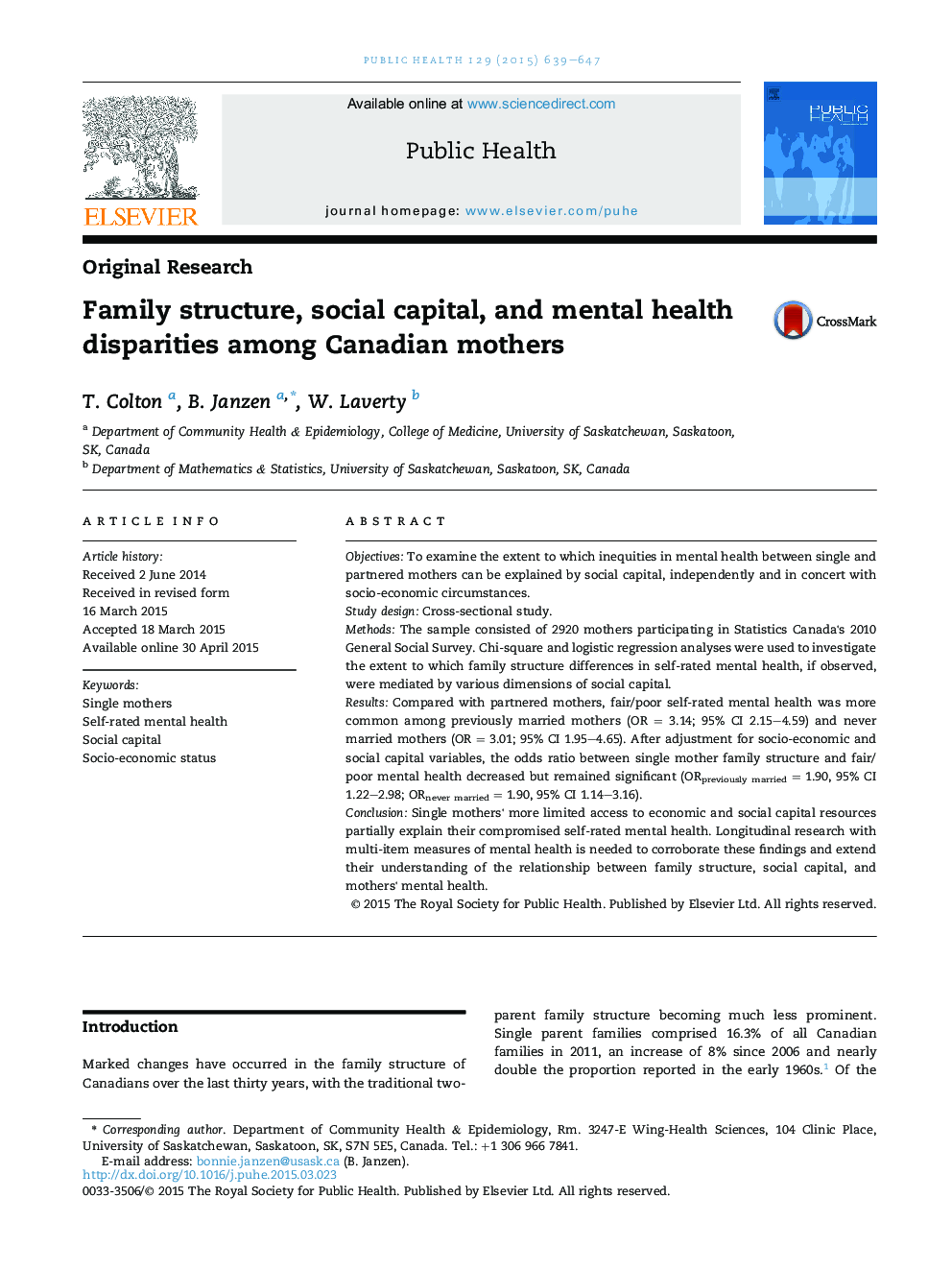| Article ID | Journal | Published Year | Pages | File Type |
|---|---|---|---|---|
| 1087336 | Public Health | 2015 | 9 Pages |
•We studied whether social capital influences single mothers' mental health.•Social capital explained much but not all of single mothers' greater mental morbidity.•Policies aimed at improving health in single mothers should consider marital history.
ObjectivesTo examine the extent to which inequities in mental health between single and partnered mothers can be explained by social capital, independently and in concert with socio-economic circumstances.Study designCross-sectional study.MethodsThe sample consisted of 2920 mothers participating in Statistics Canada's 2010 General Social Survey. Chi-square and logistic regression analyses were used to investigate the extent to which family structure differences in self-rated mental health, if observed, were mediated by various dimensions of social capital.ResultsCompared with partnered mothers, fair/poor self-rated mental health was more common among previously married mothers (OR = 3.14; 95% CI 2.15–4.59) and never married mothers (OR = 3.01; 95% CI 1.95–4.65). After adjustment for socio-economic and social capital variables, the odds ratio between single mother family structure and fair/poor mental health decreased but remained significant (ORpreviously married = 1.90, 95% CI 1.22–2.98; ORnever married = 1.90, 95% CI 1.14–3.16).ConclusionSingle mothers' more limited access to economic and social capital resources partially explain their compromised self-rated mental health. Longitudinal research with multi-item measures of mental health is needed to corroborate these findings and extend their understanding of the relationship between family structure, social capital, and mothers' mental health.
